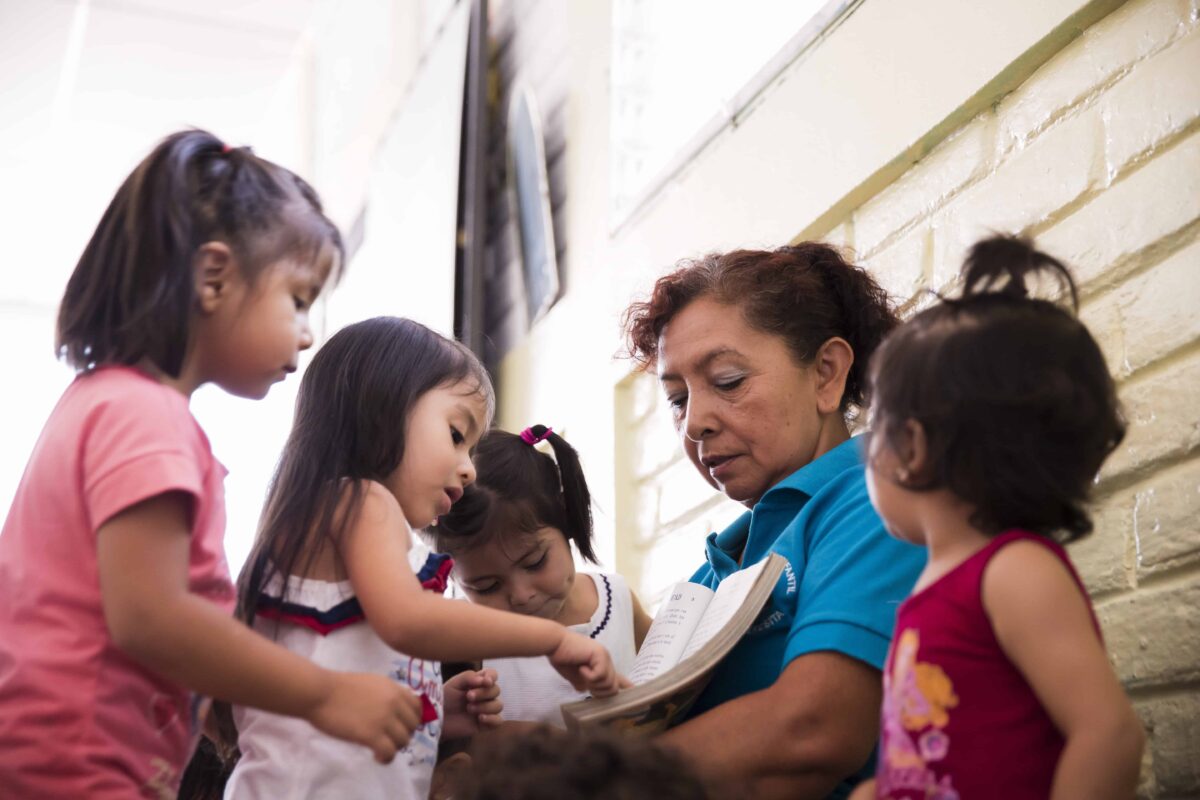La lecture est la base de la connaissance. De l'apprentissage de l'histoire et de la science, Pour naviguer dans les tâches quotidiennes et pouvoir se perdre dans un monde fantastique - tout cela est possible en lisant et compréhension Ce que nous lisons, Ce que nous connaissons comme la compréhension de la lecture.
Mais apprendre à lire ne se produit pas naturellement, Comme lorsque nous apprenons à parler une langue dans l'enfance après une exposition répétée à une langue. L'alphabétisation et la compréhension de la lecture nécessitent un effort intentionnel et explicite pour développer deux compétences fondamentales: D'abord, Comprendre la langue dans laquelle vous voulez lire; deuxième, décodage, ou être capable d'interpréter les symboles de la page dans les sons qu'ils font.
Cela semble relativement simple, Surtout dans le cas d'une langue «transparente» comme l'espagnol, dans lequel la plupart des lettres n'ont qu'un seul son. Encore, Amérique latine et caribéenne (LAC) Les élèves continuent de mal performer sur la lecture, qui devrait avoir aggravé à la suite de la pandémie.
Dans 2019, 16 Des pays de la région ont participé à la quatrième étude régionale comparative et explicative (ERCE), qui a évalué les élèves de troisième et de sixième année sur la lecture, mathématiques, et la science. Un analyse des résultats concluent que la majorité des étudiants - plus que 80 pourcentage - au Panama, la République dominicaine, Honduras, Le Guatemala et le Nicaragua n'ont pas atteint les niveaux minimaux de compétence en lecture en sixième année.
Mais que nous disent les preuves actuelles sur la compréhension de la lecture de l'enseignement? Récemment, En tant que directeur de l'unité technique dans la division Education for Development, J'ai donné une conférence à Concours RedLEI 2022, Un dialogue virtuel pour réfléchir aux preuves de lecture de première année et aux meilleures pratiques dans la région.

Destiné principalement aux enseignants de la région, J'ai partagé les dernières preuves basées sur des années de recherche et d'études sur la compréhension de la lecture, les sous-kill qui doivent être enseignés à y parvenir, et les activités spécifiques que les enseignants peuvent mettre en œuvre en classe pour développer des lecteurs forts. Certains des concepts et stratégies clés inclus:
- Connaître une langue et être capable de lire les mots sur une page (décodage) sont tenus de pouvoir lire et écrire. Les deux compétences doivent aller de pair et chaque compétence est nécessaire mais pas suffisant en soi pour favoriser la compréhension de la lecture.
- L'enseignement de la compréhension de la lecture devrait commencer tôt et être enseigné simultanément avec d'autres compétences clés en lecture - il n'a pas à attendre que certaines sous-kills aient été maîtrisés.
- Développement oral compréhension du langage (La lecture à haute voix est particulièrement efficace) est un précurseur important pour développer la compréhension de la lecture.
- Les enfants doivent apprendre la structure du texte et comment elle diffère du langage oral (par exemple. marques de ponctuation, intonation, etc.).
- Nous devons explicitement enseigner les stratégies de compréhension (Par exemple, Poser des questions critiques sur les personnages ou l'intrigue, auto-surveillance, etc.).
- Discussion, L'analyse et l'écriture sur les textes aident les apprenants à progresser de la compréhension au niveau littéral (basique) à l'inférentiel (moyen) et enfin au niveau évaluatif ou critique (avancé).
- Nous devons motiver les enfants à aimer la lecture en créant des espaces de lecture confortables et amusants, leur fournir des textes intéressants à lire, leur permettant de choisir leurs sujets, etc..
Le La présentation complète est Disponible ici (en espagnol).
Rébecca Pierre, Éd.D., est un spécialiste de l'alphabétisation précoce qui a récemment dirigé un revue systématique de la littérature de lecture de début en Amérique latine et des Caraïbes. Rebecca a dirigé plusieurs programmes d'alphabétisation précoce dans la région et à travers le monde. Elle dirige actuellement l'unité technique de Creative Associates's Education Division de l'éducation à superviser une équipe de spécialistes travaillant sur la conception et la mise en œuvre de programmes d'éducation pour s'assurer que tous les enfants et les jeunes ont accès à une éducation de qualité.